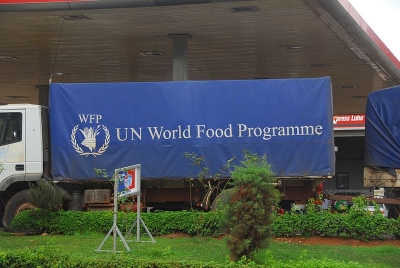

Geneva, Oct 22 (IANS) The ceasefire in Gaza has enabled the United Nations (UN) humanitarians to reach more people with life-saving food, but greater access is needed to stem famine, a UN representative in Geneva said.
Abeer Etefa, senior regional communications officer and spokesperson for the World Food Programme (WFP), said that since the ceasefire began on October 11, the agency has delivered over 6,700 metric tonnes of food, enough for nearly half a million people for two weeks, Xinhua news agency reported.
“Daily deliveries continue and now average around 750 tonnes,” she said, noting this remains well below WFP’s target of 2,000 tonnes a day. “Unless all border crossing points are used, reaching this target is almost impossible.”
Currently, only the Kerem Shalom and Kissufim crossings in the south are open. Severe destruction continues to block access to northern Gaza, where famine was declared in August. “We need Erez, we need Zikkim, we need these border crossing points to open,” Etefa stressed.
Reaching northern Gaza with large-scale convoys is a priority. “We’ve cleared roads at scale into the north,” she said, “but we need these crossings open to connect to Gaza City, where conditions are especially dire.”
WFP is restoring its food distribution network, aiming for 145 distribution points across the Strip, of which 26 have reopened. “People are showing up in large numbers, grateful for the efficiency and the dignified way they can collect their rations,” Etefa said.
The aid is especially crucial for “the most vulnerable,” the women, female-headed households, and the elderly, she added. While many are hopeful, “there is cautious optimism” about how long current conditions will last. Many families save part of their rations because they are not confident the ceasefire will hold. “It is a fragile peace,” she said.
Food prices remain prohibitive, and supplies are still insufficient. “People can find food in the market, but it’s out of reach because it’s extremely expensive,” Etefa warned.
WFP is also helping the most food-insecure households through digital payments, enabling about 140,000 people to buy food locally, with plans to double that number soon. But Etefa stressed that humanitarian aid alone cannot solve the crisis, and commercial supplies must enter to complement relief efforts.
Only a fully implemented and sustained ceasefire can allow WFP to operate at the scale needed, Etefa said.
–IANS
int/rs
